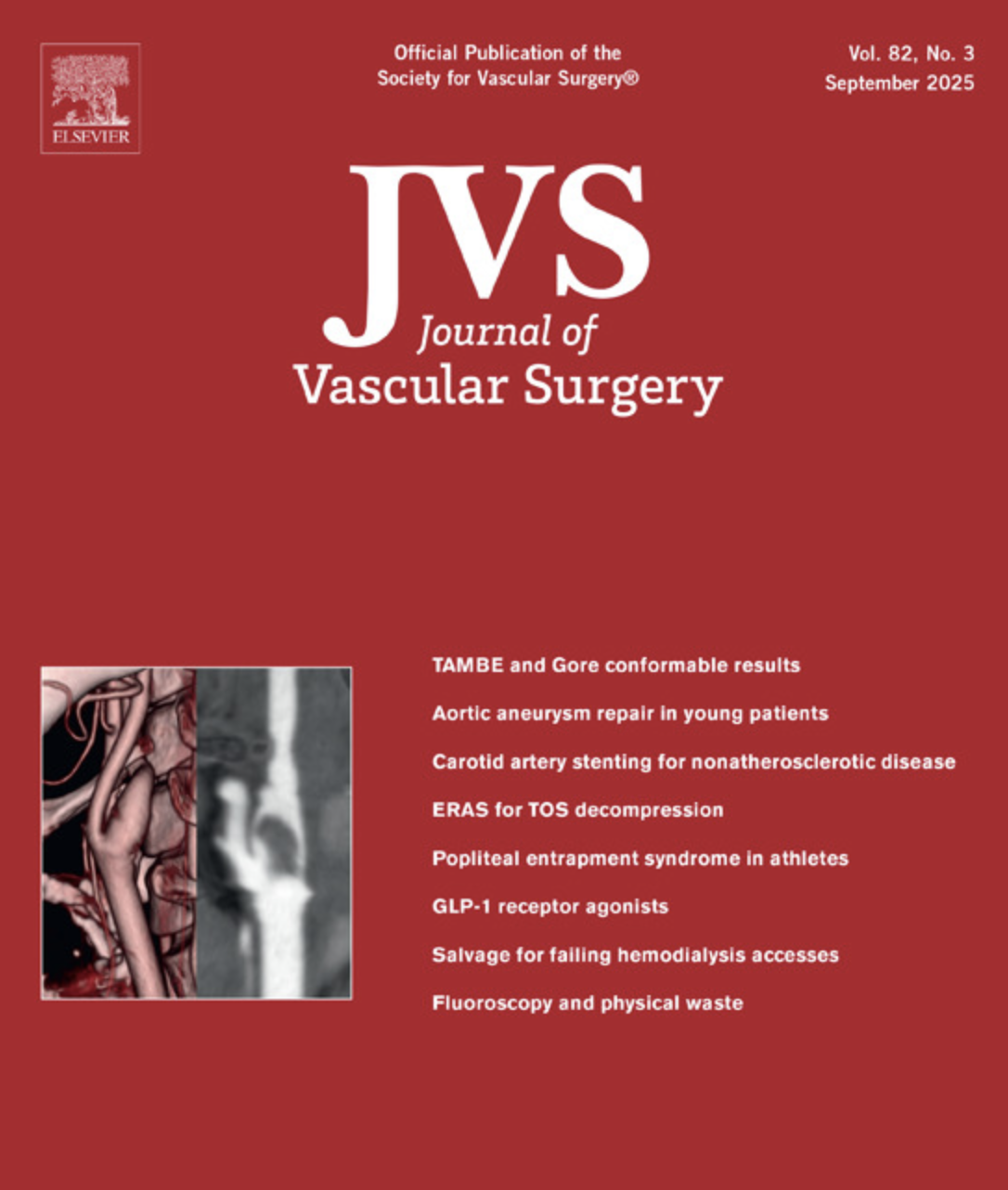CTVS Surgeons Lead the Way in TCAR Research and Stroke Prevention
Cardiothoracic and Vascular Surgeons (CTVS) is proud to celebrate major practice milestones in vascular surgery, from published research to first-in-nation procedures that advance patient care and stroke prevention. Six vascular surgeons from CTVS co-authored a new study published in the Journal of Vascular Surgery, analyzing outcomes for patients undergoing TransCarotid Artery Revascularization (TCAR). The study highlights TCAR as a safer and effective alternative to traditional carotid endarterectomy for treating carotid artery disease, a major cause of stroke, particularly in patients at higher risk for complications. In addition, vascular surgeon Dr. Bradley Boone was the first in the nation to use a newly [...]
Understanding PAD and Diabetes
Peripheral artery disease (PAD) is a serious condition that occurs when arteries in the legs and feet become narrowed or blocked, reducing blood flow. People with diabetes are at higher risk for PAD, which can lead to slow-healing wounds, infections, and in severe cases, amputation. September is PAD Awareness Month, making it the perfect time to learn about the connection between PAD and diabetes, recognize symptoms early, and understand available treatments options at CTVS. PAD and Diabetes: Why the Risk is Higher Diabetes can damage blood vessels over time, making it harder for your body to circulate blood efficiently. Poor circulation increases the likelihood [...]
How Heat Affects Your Heart
When the thermometer soars into triple digits, the impact goes beyond just feeling uncomfortable. Extreme heat puts added stress on the cardiovascular system as it works harder to keep the body cool, and that extra demand can be especially dangerous for people with heart conditions. Why Hot Weather Strains Your Cardiovascular System The body’s response to heat involves blood vessel dilation and sweating to cool down—mechanisms that lower blood pressure and reduce blood volume. In turn, the heart must pump harder and faster just to maintain circulation. This can worsen heart failure, trigger arrhythmias, or even lead to acute events [...]
Quality Sleep Matters as Much as Quantity for Your Heart
A new scientific report suggests that how well you sleep may matter just as much as how long you sleep. Beyond counting hours, factors like falling asleep easily, maintaining a regular sleep schedule, and waking up refreshed all play a vital role in supporting heart health. Sleep is so important, the American Heart Association recently added it to the Life’s Essential 8TM cardiovascular health checklist alongside diet, physical activity, blood pressure, cholesterol, blood sugar, weight, and nicotine exposure. Why Sleep Is Good for Your Heart When you sleep, your body enters a natural state of restoration that directly benefits your cardiovascular system. [...]
The Evolving Face of Heart Disease
Over the past 50 years, the landscape of heart disease has changed dramatically, and largely for the better. According to a new report from the American Heart Association, overall death rates from heart disease have dropped by 66%, and deaths from heart attacks specifically have declined by nearly 90%. These numbers reflect decades of progress in preventive care, early intervention, and innovations in treatment to help people live longer. While fewer people are dying from heart attacks, the types of heart disease affecting patients, and leading to death, are shifting. From Heart Attacks to Heart Failure, Arrhythmias, and Hypertensive Heart Disease Today, [...]
Why Athletes Are at Risk for Blood Clots
Athletes are often viewed as the picture of health. But even those in peak physical condition can face serious vascular challenges. One condition that can affect young, otherwise healthy athletes is Thoracic Outlet Syndrome (TOS), a disorder that can restrict blood flow and lead to clot formation between the collarbone and upper ribs (or thoracic outlet). At Cardiothoracic and Vascular Surgeons (CTVS), our vascular specialists are highly experienced in diagnosing and treating TOS, especially in athletes and active individuals. Why Athletes Are at Risk for Blood Clots You don’t need to have traditional risk factors like smoking, obesity, or a sedentary lifestyle [...]
When Would I Need to See a Thoracic Surgeon?
If you’ve been diagnosed with a serious condition in your chest, your primary care doctor or specialist may refer you to a thoracic surgeon for expert evaluation and treatment. What is a thoracic surgeon? A thoracic surgeon is a doctor who performs surgery on the organs inside the chest including the lungs, esophagus, and airway. What does a thoracic surgeon do? Thoracic surgeons are trained to operate on the chest area, also known as the thorax. They help: Take biopsies (a small tissue sample) to check for cancer Remove tumors or masses Treat damage or abnormalities between the abdomen and [...]
Silent Risks Every Man Should Know
In June we celebrate fathers and the special male figures in our lives. Since June is Men’s Health Month, one of the best ways to show your love and appreciation is to check in with them about their well-being, both physical and mental. According to research from the CDC, men are less likely than women to schedule an annual physical or seek medical help if needed. As a result, men may not pay attention to or take action on what could be serious health issues, especially those that may have more subtle or silent symptoms, like aortic aneurysms and peripheral [...]
Jeremy’s Story of TIA and the Power of TCAR
Symptoms like facial drooping, arm weakness, blurred vision, or slurred speech are all common indicators of a stroke, but they can also signal a Transient Ischemic Attack (TIA)—sometimes called a “mini-stroke.” While a TIA may not cause permanent damage, it’s a critical red flag that a full stroke could follow. Recognizing and acting on these warning signs can save your life. A Transient Ischemic Attack (TIA) is caused by a blockage in the carotid artery (located in the neck) that supplies blood to the brain. People who experience a TIA are often highly likely to suffer a stroke later on. [...]
When should you see a vascular surgeon?
The vascular system is the vast and intricate network of vessels, veins and arteries that supplies the body’s organs with blood. It is estimated that there are more than 60,000 miles of arteries and veins running through our vascular system. A vascular surgeon helps to surgically treat serious conditions and diseases associated with your blood vessels, veins and arteries. At CTVS, our team of vascular surgeons have been caring for patients in Central Texas for more than 65 years. Some of the common vascular conditions that we regularly treat include carotid artery disease, abdominal aortic aneurysms, peripheral artery disease, thoracic [...]










